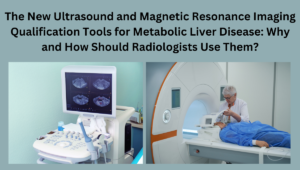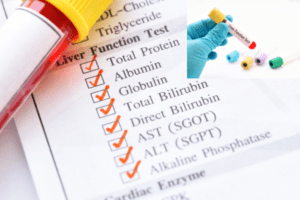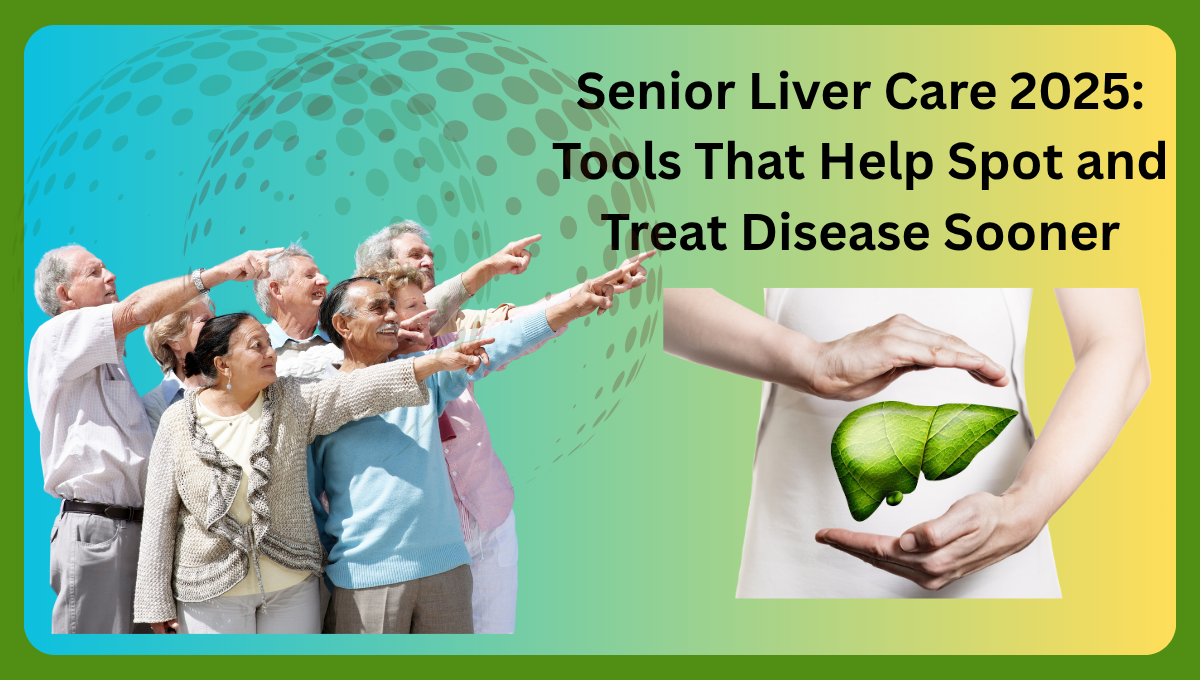Senior Liver Care 2025: Tools That Help Spot and Treat Disease Sooner
The Growing Significance of Early Identification of Liver Disease in Elderly People
Liver disease is becoming a more serious health issue, especially for the elderly population. Advanced diagnostic and treatment approaches are desperately needed because metabolic diseases, polypharmacy, and age-related changes in liver physiology make older persons more susceptible to liver problems. Early detection and prompt treatments are now possible thanks to recent advancements in liver disease instruments, greatly enhancing the prognosis and quality of life for senior citizens.
Innovative Liver Disease Diagnostic Instruments for the Elderly

1. Imaging Without Invasion: The New Gold Standard The application of non-invasive imaging methods is among the most groundbreaking developments in liver diagnostics. In geriatric hepatology, instruments like magnetic resonance elastography (MRE) and transient elastography (FibroScan) are now commonly used. By using these techniques, doctors can evaluate liver stiffness, a sign of fibrosis, without doing a liver biopsy.
FibroScan estimates fat content by measuring liver stiffness and controlled attenuation parameter (CAP) values.
MRE offers a more thorough picture and is especially helpful for elderly individuals who are obese or at high risk.
These products are perfect for elderly people who are fragile or at high risk because they are dependable, safe, and rapid.
 2. Advanced Blood-Based Biomarkers The sensitivity and specificity of blood-based diagnostic panels have increased. These days, age-adjusted metrics are used to calibrate tools like the FIB-4 index, NAFLD fibrosis score, and APRI score, providing more reliable evaluations for people over 60.
2. Advanced Blood-Based Biomarkers The sensitivity and specificity of blood-based diagnostic panels have increased. These days, age-adjusted metrics are used to calibrate tools like the FIB-4 index, NAFLD fibrosis score, and APRI score, providing more reliable evaluations for people over 60.
The ability of more recent biomarkers, such as Pro-C3 and the Enhanced Liver Fibrosis (ELF) score, to identify fibrosis early is being investigated, particularly in older patients with non-alcoholic fatty liver disease (NAFLD).
3. Predictive algorithms powered by AI
Tools for machine learning and artificial intelligence are increasingly being used to forecast how liver disease may develop. These algorithms detect older individuals who are in danger long before symptoms manifest by analyzing large datasets from imaging, laboratory results, and electronic health records.
Additionally, AI-driven technologies can discriminate between different liver disorders, such as alcoholic liver disease, metabolic-associated fatty liver disease (MAFLD), and nonalcoholic fatty liver disease (NAFLD). This distinction is crucial in older populations, as risk factors typically overlap.
Specific Therapy Choices Designed with Elderly Patients in Mind
1. Tailored Antifibrotic Treatments
The goal of new treatment approaches is to reverse fibrosis in its early stages. Researchers are clinically evaluating treatments such as PPAR agonists (like lanifibranor) and FXR agonists (like obeticholic acid) for use in older adults.
These drugs seek to:
Cut down on inflammation
Stop fibrotic processes
Boost the metabolism of carbohydrates and fats
Dosing and side-effect profiles are modified to account for the comorbidities that are common in older patients, guaranteeing both safety and effectiveness.
 2. Lifestyle and Nutritional Changes
2. Lifestyle and Nutritional Changes
Comprehensive lifestyle modification continues to be a key component of managing liver disease in addition to medication. Personalized diet plans for senior citizens that emphasize:
Diets high in protein to fight sarcopenia
Foods with a low glycemic index to regulate metabolism
Omega-3 and vitamin E supplements
…may considerably slow the course of the disease.
Senior-specific programs that increase adherence and long-term success include telemedicine counseling, home visits from dietitians, and supervised exercise regimens.
3. Monitoring and Deprescribing for Polypharmacy
Drug-induced liver damage (DILI) is more likely to occur in older persons since they frequently take many drugs. Hepatotoxic medication interactions can now be detected in real time by new pharmacovigilance systems that are integrated with electronic medical records (EMR). Hepatologists and clinical pharmacists collaborate to stop prescribing needless drugs, which lessens liver stress and enhances patient outcomes.
Growing Number of Specialized Geriatric Liver Clinics
Geriatric hepatology clinics are starting to appear in large medical facilities to address the special requirements of senior citizens. These clinics provide:
Hepatologists, geriatricians, pharmacists, and nutritionists providing multidisciplinary care
Even in people who are asymptomatic, routine liver disease screening is recommended.
Utilizing cognitive testing and frailty assessments to customize therapy regimens
Seniors with complex liver problems, particularly those who have concomitant disorders like diabetes, heart disease, or kidney dysfunction, require the use of integrated care approaches.
Population Health Techniques: Outreach & Community Screening
The significance of monitoring older persons for liver disease is finally being acknowledged by public health systems. Programs like
Community-based camps for FibroScan
Senior Citizen Center Outreach
Partnerships between primary care providers for early referral
are assisting in the early detection of liver disease before it develops into cirrhosis or liver cancer. The senior hospitalization rate is decreased by these cost-effective preventive measures.
Obstacles in Elderly Liver Care and How They Are Overcome by New Technologies
Older persons frequently have particular difficulties:
Unusual manifestation of symptoms such as exhaustion or disorientation (hepatic encephalopathy)
restricted mobility or access to medical care
Lack of knowledge about the signs of liver illness
These problems are directly addressed by the new diagnostic and therapeutic instruments by
Providing portable FibroScan devices for at-home diagnostics
delivering follow-up and monitoring telehealth consultations
Identifying liver problems during routine examinations with AI-driven alarms in EMRs
Prospects for the Future: An Era of Precision Medicine for Elderly Liver Health
Precision medicine holds the key to the future of geriatric liver treatment. Senior liver care regimens can be highly customized by clinicians using genomic data, lifestyle information, and digital health tools.
Gene therapy, microbiota modification, and regenerative hepatology approaches are being investigated in ongoing clinical trials, with a focus on older persons. Maintaining liver health becomes essential to aging well as life expectancy rises.

